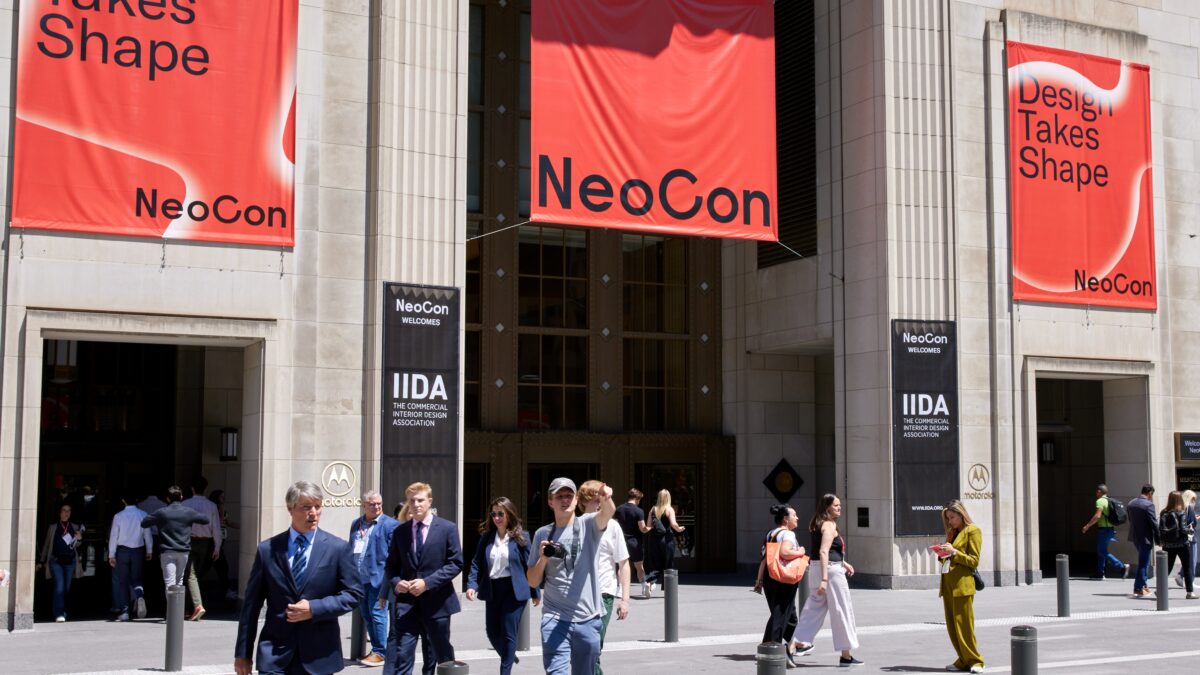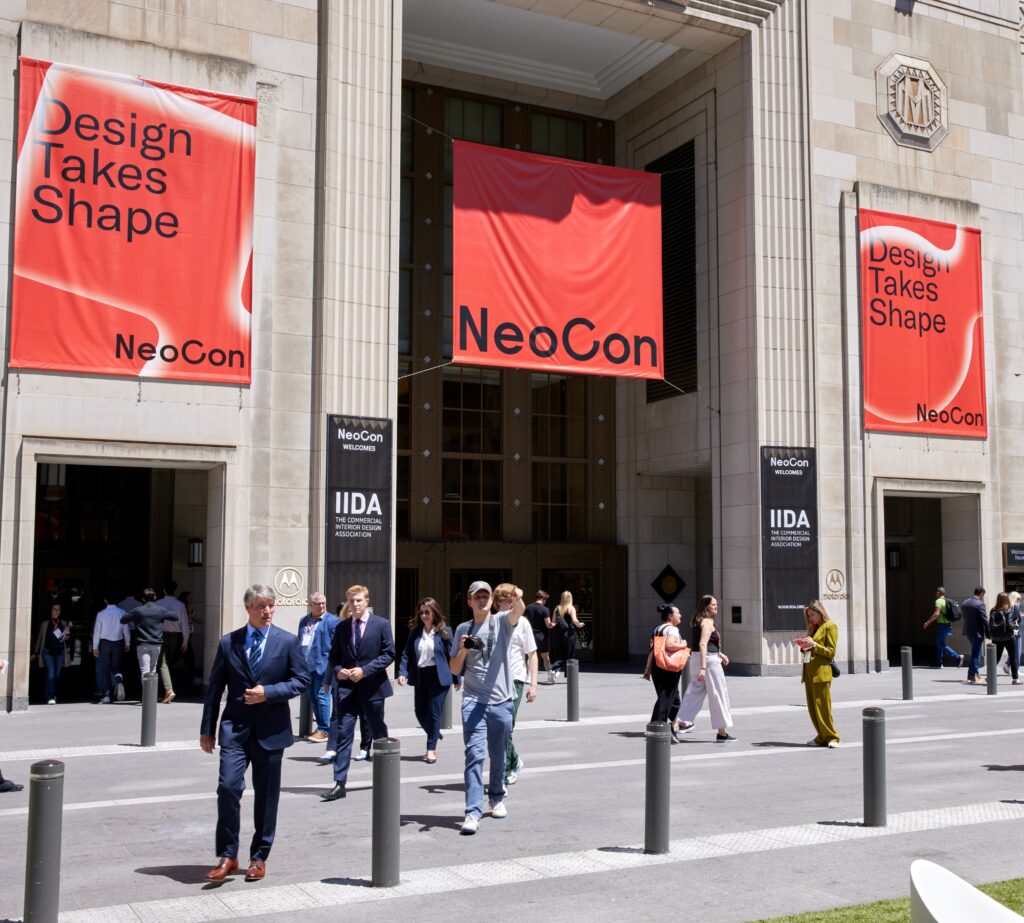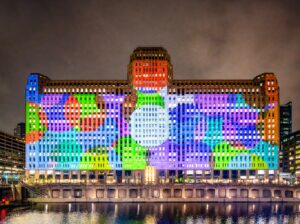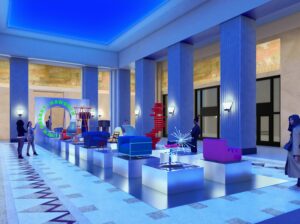Education FMs and designers at NeoCon 2025 can learn about inclusion, collaborative campuses, and visioning for school design


May 24, 2025 — NeoCon 2025 will offer on-site educational programming, presented by world-class experts on the latest strategies, emerging technologies, sustainable practices, and compelling concepts from leading associations, universities, architecture and design firms, manufacturers, and media outlets. In addition, there will be over 60 virtual CEU seminars addressing relevant and pressing topics. All NeoCon CEU Sessions, on-site and virtual, are $50 each or $45 each with a purchase of 5 or more sessions. You can register for and watch the sessions on-demand June 9 through October 1, 2025.
Each session is 60 minutes. Sessions are approved for 1 CEU for Designers and 1 LU for Architects. Certificates are available post-session after completing a 10-question quiz.
Higher education and K-12 facility managers could be interested in these on-site CEU sessions:
How Can Science Make Us All More Creative. Really. In an era where information floods our senses and technology reshapes thinking patterns, the ability to focus has become a precious resource. Our physical surroundings play a key role in enhancing or hindering individual and group creative capabilities. This session explores how scientific research into environmental psychology is leveraged to create spaces that support focus and creativity. From ambient sounds to colors, natural materials, light, and spatial configuration, our environments shape creative potential. Understanding these principles isn’t just about designing better workplaces—it’s about creating environments that help navigate information while maintaining the clarity for innovative thinking.
Virtual CEU sessions in the Education track include:
Design on a Spectrum. In today’s diverse society, designing spaces that cater to a wide range of cognitive profiles is more essential than ever. This panel will explore actionable strategies and best practices for creating neuro-inclusive spaces that foster well-being, belonging, functionality, and comfort for all users.
Designing to Support Collaborative Campus Communities. Contemporary pedagogy has shifted towards decentralized models with an increased emphasis on group collaboration and project-based learning. For campuses, adapting to this shift means supporting collaborative work between students, students and faculty, and between faculty. Learn how to design spaces specifically for these new modes of interaction at different scales and within diverse contexts, like reinventing an Ivy League biomedical library as a hub of hands-on iterative research; converting a natatorium into an all-ages STEM Center; or creating a new center for business education for one of the nation’s top programs. At both K-12 and higher education levels, creative solutions, quality design, and responsive aesthetics make for sought-after spaces that are in constant use. Explore solutions for common challenges like integrating effective technology, designing for flexibility, optimizing acoustics – and how to make these spaces not just functional but also beautiful.
Education Continuum: Preparing Kids for Tomorrow’s Workplace. Today’s workplaces bear little resemblance to those of our parents. From the hierarchical and segmented workplaces of the post-WWII era – to today’s open and collaborative “innovation hubs”, there has been a shift in how and where people work. Competition for highly skilled workers continues to intensify. School planners and designers must evolve the landscape to prepare students for success, and workplace designers must keep up with generational shifts and changing workstyles. We will explore the interwoven relationship between learning and work environments. We will discuss the continuum from kid’s basic needs during early education through the expectations of today’s employers – and identify specific ways that designers can create spaces throughout the educational journey to equip students with the social, intellectual and technical skills needed to succeed in todays workplace.
Planning with Purpose: Impactful Visioning for School Design. The rapidly evolving landscape of teaching and learning requires educational facilities to be adaptive, purposeful, and resilient. This session explores the power of the visioning process in shaping impactful education design projects. Participants will gain an in-depth understanding of how visioning fosters a project’s success by aligning spatial goals with community aspirations, yielding innovative design solutions. Attendees will explore best practices for effective visioning sessions with diverse stakeholders, and strategies for translating conceptual ideas into spaces that promote exceptional design and pedagogy. Case studies will illustrate how visioning generates environments for learning that promote wellbeing, collaboration, and innovation, while wholeheartedly reflecting a community’s identities and values. Attendees will be equipped with tools to ensure their projects not only meet immediate needs but also anticipate future demands, fostering long-term institutional success.
Montreal’s Creative Digital Design for the Built Environment. This session highlights Montreal’s globally recognized creative sector, which draws influence from Quebec’s storied history in live entertainment, arts & culture, technical video gaming and a playful but practical approach to public art and placemaking. Thought leaders from Montreal’s digital creative and placemaking ecosystem will share strategic insights around producing & using both digital content production as well as physical installations to drive meaningful engagement in the public realm.
Transforming Buildings into Material Resources: Demolition projects have a significant impact on climate change due to the energy and resources required, as well as the emissions created during the process. Material recovery through deconstruction is an unparalleled opportunity for reducing embodied carbon, while also diverting construction waste, reducing exposure to toxic pollutants, protecting natural resources, and creating green jobs.
Virtual sessions in the facilities management track include:
FF&E Changes in Sports Spaces: Mercedes-Benz Stadium Clubs: Using case study examples from Mercedes-Benz Stadium’s Field Level VIP Clubs, this panel will take a deep dive into navigating the changing landscape of furniture in public assembly spaces. The dynamic group of experts will discuss client expectations and best practices for specifying the right product for the application – extending beyond aesthetics and considering factors such as durability, mobility, accessibility and functionality. As conversions teams are constantly reconfiguring spaces, the session will address approaches to finishes and features to facilitate versatile, multi-use public environments, and to deliver high quality visitor experiences. This panel will discuss how to champion sustainability and community connections. Panelists will underscore proactive communication across the project’s lifecycle, best practices for engaging complex stakeholder networks and a pipeline for continued client communication after installation and solving for arising issues.
Moving Towards Circularity: A Playbook for Sustainable Furniture Planning & Specifications: Think sustainable furniture planning has to be overwhelming, costly or impractical? Think again! This session empowers facility owners, designers, and specifiers with tools and strategies to simplify sustainability and make a measurable impact–and (gasp!) maybe even enjoy the process.
Discover how informed selections, certified materials, and sustainable practices lead to smarter choices that boost durability, extend furniture life, and keep items out of landfills–while saving money and improving budget efficiency. We’ll guide you through RFPs, procurement, and change management, transforming these steps into powerful tools for creating healthier spaces and minimizing environmental harm.
Whether you’re tackling large-scale projects or refining your specification process, this session offers practical strategies to achieve financial savings. Leave with fresh ideas, useful tools, and the confidence to make impactful decisions that save resources and create lasting value.



